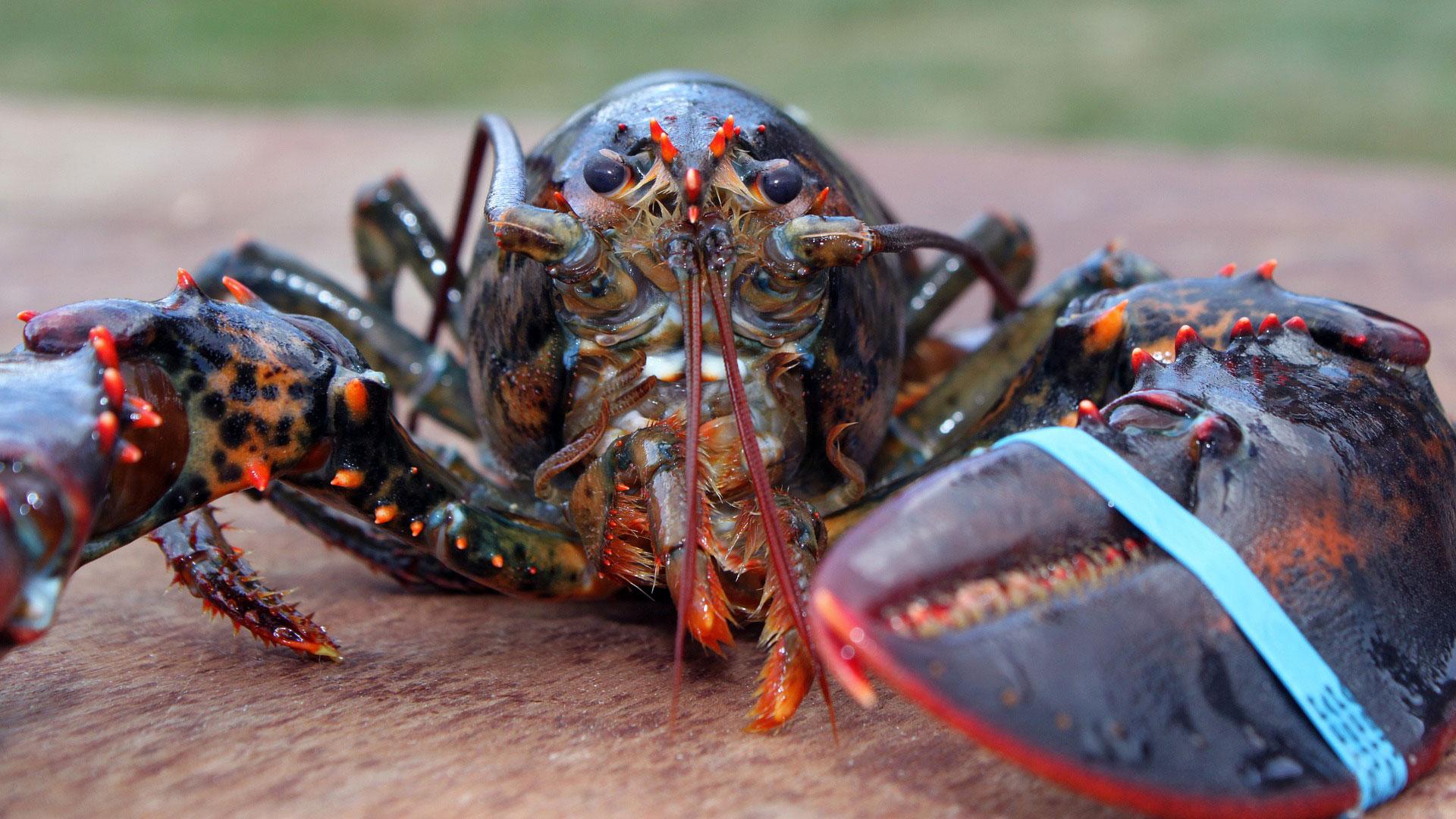Chef Nigel Bloxham has been cooking lobsters at his Crab House Café in Dorset, southwest England, for more than 16 years. The seafood restaurant sits on the idyllic edge of Chesil Beach overlooking the English Channel. All the fish served there is locally sourced.
Like most chefs in Britain, Bloxham started out boiling lobsters and crabs alive, the way it’s taught in cookbooks, he said. Many chefs boil shellfish while they’re still alive to minimize food poisoning risks. Lobsters and other shellfish have harmful bacteria in their flesh that can multiply if not fully cooked.
Today, however, Bloxham views this cooking method as barbaric. And some British lawmakers agree. The UK parliament is in the process of passing a new Animal Welfare (Sentience) Bill. The law will replace EU legislation, which legally recognizes that animals can feel pain and experience emotions.
Related: This orangutan’s ‘personhood’ victory brings hope to US animal rights
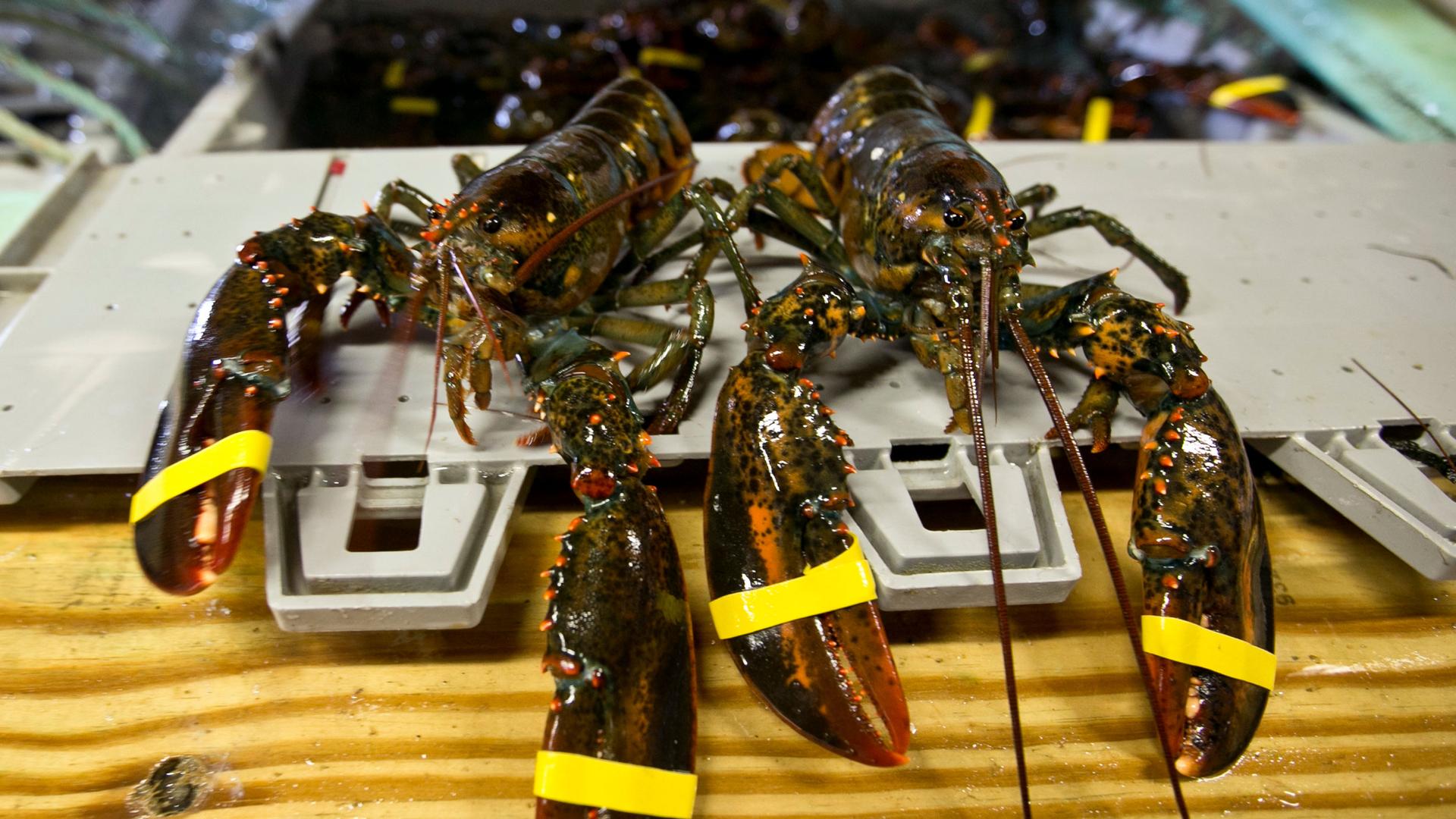
Some House of Lords members (the UK’s upper House of Parliament) believe the bill should go further and include certain invertebrates. It would recognize that all shellfish feel pain.
Speaking during the House of Lords debate in June, Baroness Janet Fookes said she was “shocked by some of the treatment of animals, such as lobsters, crabs and squid, in the way they have been stored and, very often, killed.”
Maisie Tomlinson, co-director of Crustacean Compassion, a campaign group that lobbies for welfare rights for decapod crustaceans, said that lobsters are undoubtedly sentient beings. She said studies by professor Robert Ellwood at Queen’s University in Belfast tested the theory and proved that crustaceans retain a memory of a painful experience. These studies also examined whether decapods (shrimp, crab, lobster) had the capacity to weigh competing courses of action to avoid electric shock — “and they did,” she said.
Related: A new book explores culture within the animal kingdom
But not all scientists agree.
Robert Steneck, a professor at the School of Marine Sciences at the University of Maine, said a lobster’s behavior is relatively instinctual and it’s very difficult to assess whether the response is a simple reflex action or a reaction to pain.
“The nervous system of lobsters is more similar to that of a grasshopper than it is of a human.”
“The nervous system of lobsters is more similar to that of a grasshopper than it is of a human,” Steneck said. The marine scientist has been studying lobsters since 1983 in the waters around Maine. “My sense has always been that for organisms with higher cognitive capacity, you feel pain so that you can learn and remember and avoid it in the future.”
Steneck said a lobster’s ability to learn exists — but it’s limited.
Related: Denmark orders culling of minks to fight coronavirus
He himself eats lobster — but doesn’t boil them alive. It’s not out of fear of causing pain, he said, but rather “laziness.” Instead, he relies on a local lobster coop to steam them.
He pointed out that lobsters get a lot of attention in terms of how they are cooked. But few people object when it comes to boiling clams or eating oysters. He said it’s because people tend to anthropomorphize larger creatures.
“A lot of people don’t think anything of boiling clams because they share so few characteristics that are identifiable to humans, whereas something that has eyes and claws that some people might think of as hands — something that actually reacts by flipping their tail when they’re in hot water — that’s interpreted by humans as a painful end-of-life experience.”
Related: Gorilla conservation’s latest threat: COVID-19 from tourists
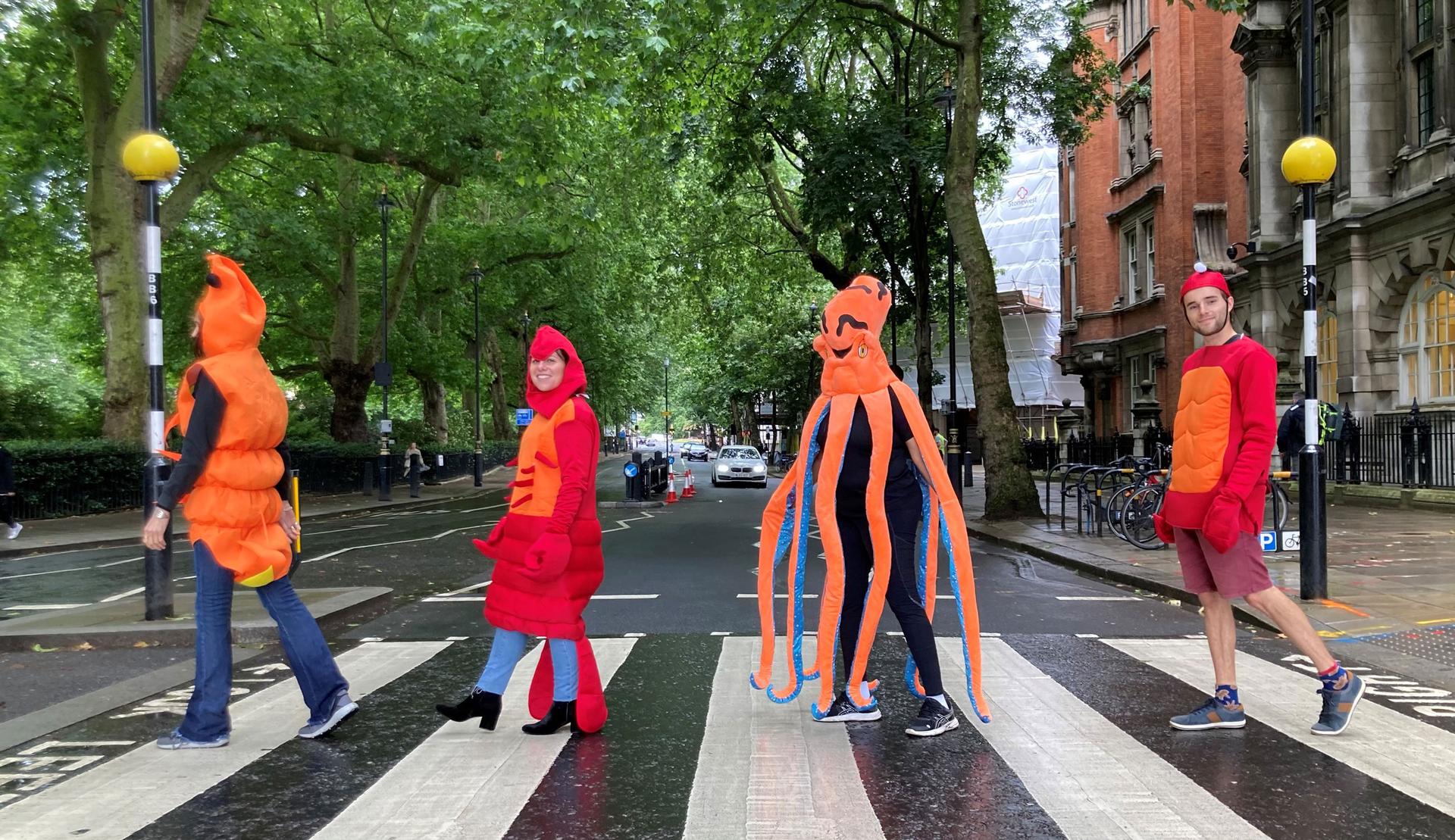
For Tomlinson with Crustacean Compassion, it’s not just about cooking shellfish, but transportation, too. Amazon came under fire in 2018 when it emerged that live lobsters were being sold on the site and shipped live from Canada to the UK. Tomlinson said she doesn’t imagine it happens a lot, but that it wouldn’t be tolerated with other live animals.
“…[These] animals could be bounced around in the back of the van, and if the consumer isn’t home to receive them, they could be left on the doorstep for days.”
“…[These] animals could be bounced around in the back of the van, and if the consumer isn’t home to receive them, they could be left on the doorstep for days,” she said.
Related: Right whales are now feeding in dangerous shipping routes
When a British supermarket wrapped a live crab in single-use plastic, lawmaker Fookes called it “a double abomination.” And Baroness Barbara Young urged lawmakers to watch the Oscar-winning film “My Octopus Teacher” to understand the sentient nature of shellfish. The documentary highlights a unique relationship between a common octopus and the filmmaker.
Tomlinson said she doesn’t object to people eating shellfish, but wants to ensure they are killed and transported humanely. She is also calling for fishers to end the practice of nicking the tendons between the claws of crabs to disable them.
“Banding those claws with rubber bands is much more humane and is less likely to cause pain or infection,” she said.
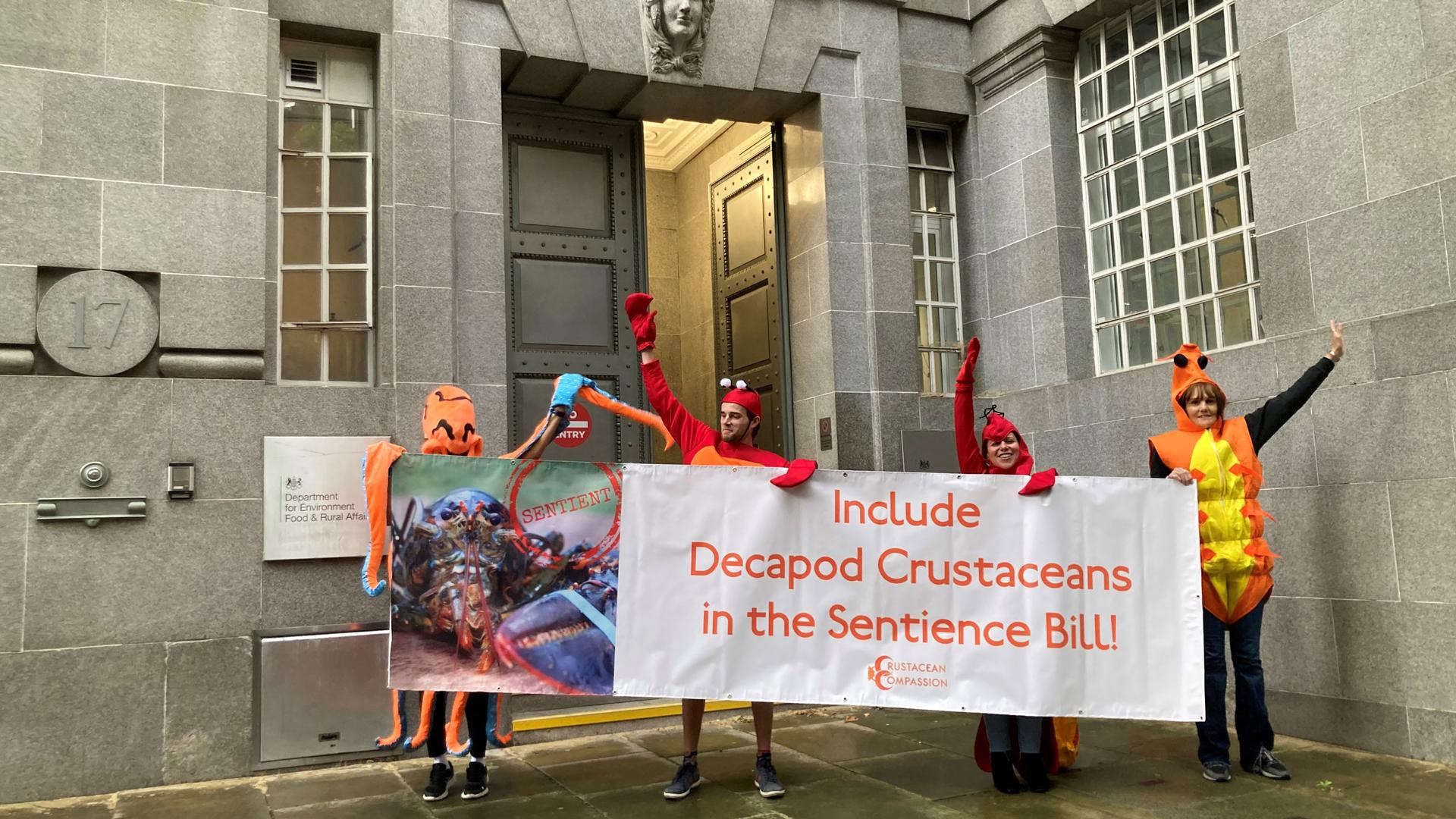
Alistair Sinclair, national coordinator of the Scottish Creel Fishermen’s Federation (SCFF), said they have heard little about the bill so far and that the UK government did not consult them. Fishermen have already been through an incredibly difficult 18 months between the pandemic and Brexit, and they ought to be consulted if any changes are made that would affect their livelihoods, he said.
The British Association for Shooting and Conservation (BASC) and the Angling Trust said they have joined forces to lobby against the bill and its potential impact on sustainable shooting and angling.
They have some supporters in parliament too.
Daniel Moylan, a baron in the House of Lords, said he worried that society was being “driven in the direction of veganism and the consumption solely of non-sentient plants.”
The bill, he said, could give the government “the unfettered power to declare that an earthworm is a sentient being.” He told the House: “My Lord, this is a power greater than that given by God to Adam in the Garden of Eden.”
Concerned politicians and fishing representatives have some time yet to voice their views.
In 2020, the British government commissioned an independent scientific review of the evidence for the sentience of decapod crustaceans and cephalopod molluscs, but findings have yet to be released. And the bill has to go through a series of committee stages and votes before it is made into law.
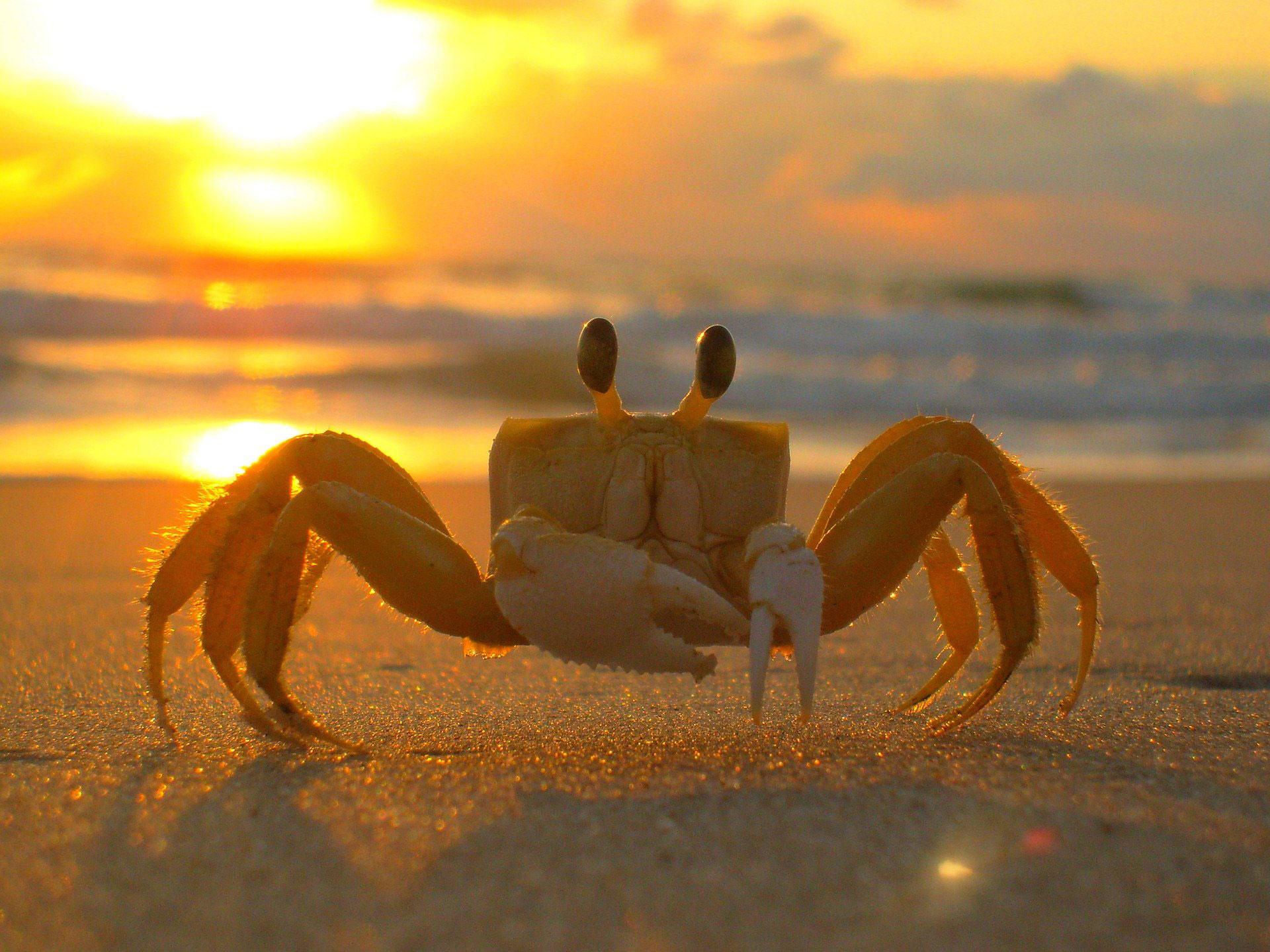
Bloxham, owner of the Crab House Café, said he’s not sure yet whether he fully supports the bill because he hasn’t read it. But if live-lobster boiling gets banned, that can only be a good thing, he said.
Bloxham now uses a crustastun, an electric device that sends a current through the shellfish. He said it can stun a lobster in under a second and kill them within 10 seconds. But the handy item comes at a whopping $3,000. Crustacean Compassion said it is one of the most humane ways to kill lobsters.
Tomlinson, the campaign director, admits there’s a long way to go before most restaurants change their practices. But she’s optimistic that the debate stirred up by the new bill is making chefs and consumers stop and think before they pop live lobsters into a pot.
We want to hear your feedback so we can keep improving our website, theworld.org. Please fill out this quick survey and let us know your thoughts (your answers will be anonymous). Thanks for your time!
